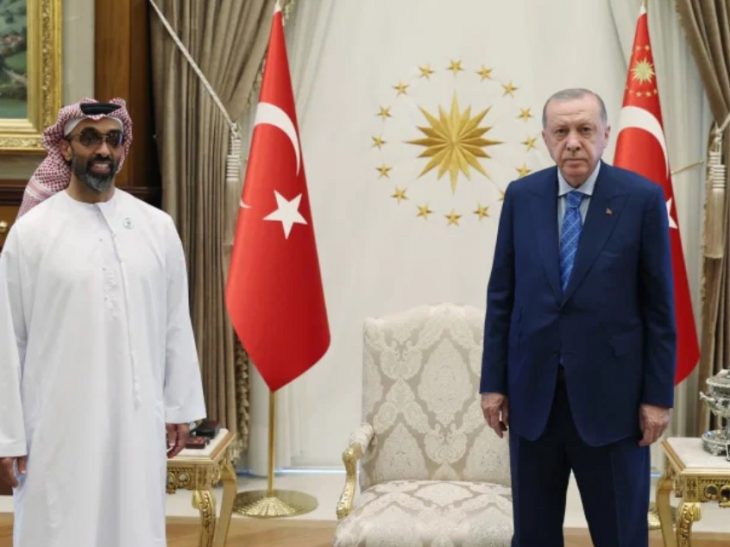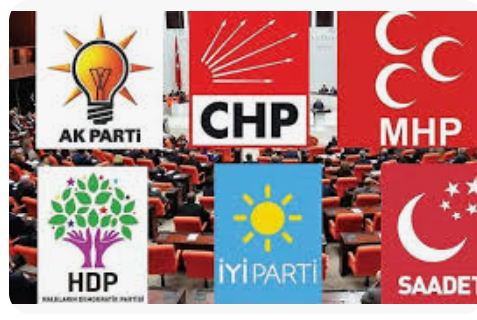Reacting to an investigation by Chief DA of Turkey concerning allegations of delegate-bribing in the its previous grand convention, CHP chairman Ozgur Ozel has taken the party to a new one, to be held this Sunday. The objective is to front run a court decision to turn the party over to a trustee. Since the practice of turning over a political party to a trustee is rarely used, and mostly for very small parties, legal precedent is thin. Obviously, CHP source claim that Sunday’s convention will put an end to efforts to paralyze the party with a trustee. Nevertheless, benefiting from the lack of a well-established framework for trustee appointment, pro-AKP press still claims it can be done, on grounds that all actions taken by the current leadership, including the decision to hold another convention are null and void.
This article evaluates the legal foundations and summarizes pro and anti-CHP camps.
Can a Trustee Be Appointed to the CHP?
[embed]https://www.youtube.com/watch?v=FcH7APGASQk&t=696s[/embed]
The recent political developments in Turkey, particularly the intensified tension between President Recep Tayyip Erdoğan’s government and Istanbul Metropolitan Mayor Ekrem İmamoğlu, have sparked widespread speculation: Could a trustee (kayyım) be appointed to the main opposition party CHP, or to Istanbul Metropolitan Municipality? This question, once deemed inconceivable, is now being seriously debated in political and legal circles.
Legal Framework
Under Turkish law, a trustee can only be appointed to a municipality in exceptional circumstances. The legal basis for this lies primarily in Article 127 of the Constitution and Law No. 5393 on Municipalities. According to these, if a mayor is suspended from office due to an ongoing criminal investigation or conviction related to terrorism or serious criminal offenses, the Ministry of Interior may appoint a trustee in their place.
A similar legal basis exists for political parties. However, intervention in a political party's internal functioning or leadership would require a decision by the Constitutional Court, based on a closure case or another extreme legal measure. This makes appointing a trustee directly to a political party—especially the main opposition party—legally much more difficult than to a municipality.
Political Dynamics and Risk Scenarios
Despite these legal barriers, the current political climate in Turkey shows that legal norms may sometimes be interpreted in line with political goals. In the past, trustees have been appointed to municipalities held by opposition parties, particularly the pro-Kurdish HDP. These were generally justified with charges of terrorism support. However, when it comes to CHP, which represents a broader political spectrum and has significant public support, such a move would be far more controversial domestically and internationally.
The scenario that concerns many observers is not necessarily the appointment of a trustee to the CHP itself, but rather to the Istanbul Metropolitan Municipality, which is under CHP control. İmamoğlu’s growing political influence and potential candidacy in the 2028 presidential elections have made him a key target of government pressure. A sudden legal case, a court ruling, or a Ministry of Interior investigation could be used to justify his removal—opening the door to a trustee appointment.
Reactions and Constraints
Such a step would create a political earthquake. Not only would it deepen polarization, but it could also severely damage Turkey’s international image. Especially in the context of improving relations with the EU and attracting foreign investment, appointing a trustee to Istanbul—a city of 16 million people and economic heart of the country—would signal a drift away from democratic norms.
Moreover, CHP’s institutional capacity, media presence, and urban organization are much stronger than those of the HDP. Any intervention would likely spark large-scale protests and civil resistance, not just in Istanbul but nationwide.
Conclusion
While there is currently no solid legal basis for appointing a trustee to the CHP as a party, the risk of a trustee being appointed to Istanbul Municipality cannot be ignored given Turkey’s political trajectory. Such a development would indicate not only a deepening of authoritarian governance, but also a significant rupture in Turkey’s political opposition landscape. In the coming months, the resilience of democratic institutions and civil society will play a key role in preventing such a scenario.
Yet, the debate has not ended
As the CHP (Republican People’s Party) heads to an extraordinary congress tomorrow in an effort to prevent the risk of a trustee being appointed to the party, debates surrounding the “controversial congress” investigation launched by the Ankara Chief Public Prosecutor’s Office have intensified.
Pro-government newspapers and TV channels are speculating that if a substantive ruling is issued regarding the 38th Congress—currently under investigation—all decisions made after CHP’s 7th Chairman Kemal Kılıçdaroğlu could be annulled. In that case, tomorrow’s extraordinary congress could also be subject to cancellation.
WAITING FOR MASAK REPORT
CHP’s legal officials, however, assert that this debate has no legal basis. They explain that the Ankara Chief Public Prosecutor’s Office requested account statements and land registry records from MASAK (Financial Crimes Investigation Board) for the individuals mentioned in the allegations. However, no concrete evidence of irregularities has emerged from either source.
Sources also stated that the Chief Public Prosecutor’s Office has requested a report based on the documents received from MASAK, but they do not expect any findings of wrongdoing in the report either. They emphasized that the more the prosecutor investigates, the more the allegations are being disproven.
"WILL ELECTED MAYORS BE SACKED, TOO?"
Party officials reminded that the lawsuits filed to annul the 38th Congress aimed to force its repetition. However, since the party has already decided to hold an extraordinary congress, those legal demands have become void. They also noted that it would be in line with the "legal spirit" for the prosecution not to pursue those cases further.
Regarding the claim that an extraordinary congress held following the allegedly flawed 38th Congress would be legally invalid, CHP legal experts responded:
“Calling for an extraordinary congress is a legally constructive, forward-acting procedure. In law, actions are not retroactive. This administration has not only called for a congress—it has also appointed mayors and municipal council members elected by the public. According to this claim, are those elected officials supposed to be invalid too? That defies both legal logic and common sense. In the event of a possible annulment decision, only the interim process in question would be voided—not actions stemming from it. Therefore, the extraordinary congress would not be annulled either.”
Then again, since the practice of law in Turkey has eroded to the bare bone, it is not implausible that Erdogan will order judges to find some pretext to turn his main rival to a trustee.
IMPORTANT DİSCLOSURE: PA Turkey intends to inform Turkey watchers with diverse views and opinions. Articles in our website may not necessarily represent the view of our editorial board or count as endorsement.
Follow our English language YouTube videos @ REAL TURKEY:
https://www.youtube.com/channel/UCKpFJB4GFiNkhmpVZQ_d9Rg
And content at Twitter: @AtillaEng
 chp2
chp2






